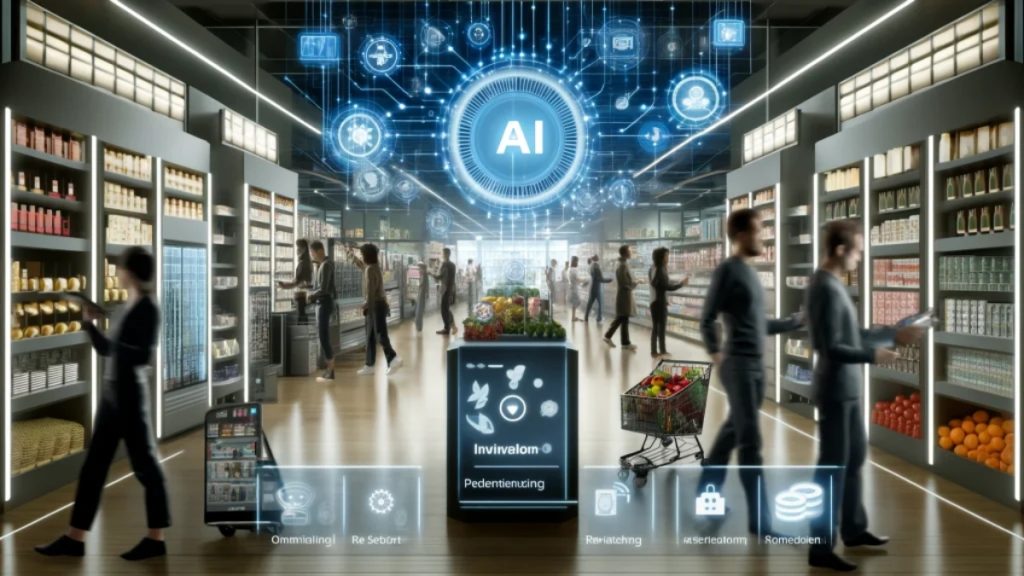Retail chains are one of the greatest examples of collaborative management. This makes them fertile grounds for experimentation and innovation as well. Obsolete manual workforce management systems used by multi-store retail chains are phasing out in favor of AI in retail. While still new, the use of this technology is already catching up.
Let us look at how retail chain businesses can leverage the growth, innovation, and productivity AI promises to enrich their operations.
Dynamic Workforce Planning
Retail chain staffing can be a complicated operation to manage with too many variables and just as many stakeholders. Dynamic workforce planning is a strategic, data-driven approach to managing an organization’s human resources. Unlike traditional workforce planning, it ensures optimal staffing levels and aligns them with both current and future business needs.
Dynamic workforce planning is one of the gateways of AI in Retail. With automation and data-driven insights, AI is set to bring seamlessness, employee satisfaction, and simplicity to workforce management. With AI, businesses gain flexibility, agility, and scalability to adapt to demand fluctuations, seasonal changes, and growth.
How AI Transforms Workforce Planning in Retail
Traditional workforce management in multi-store chains is hindered by slow scheduling, static forecasts, and a lack of real-time data. This leads to overstaffing, understaffing, inefficient scheduling, and inconsistent service quality. Against this backdrop, the smart, efficient, and comprehensive solutions brought by AI significantly improve staffing operations.
Predictive Analytics for Demand Forecasting
AI uses predictive analytics to forecast customer demand based on historical footfall data, weather trends, and other external factors like local events or holidays. By analyzing these variables, AI models can accurately predict peak periods for each store location and adjust staffing needs accordingly.
Real-Time Scheduling and Dynamic Adjustments
AI-enabled workforce management platforms integrate real-time data to continuously optimize schedules. These systems can adjust staffing levels on the fly, accounting for factors like employee availability, customer traffic, and store-specific requirements.
Automation of Routine Tasks
Manual scheduling and tracking of work hours are time-consuming tasks. AI can automate these processes, allowing store managers to focus on more strategic activities. AI-driven systems can generate schedules based on set parameters (employee preferences, labor laws, etc.) and even manage time-off requests and overtime.
Compliance with Labor Laws
AI-driven workforce planning systems can help retail chains stay compliant with labor laws by automating the tracking of working hours, overtime, and breaks, ensuring adherence to local regulations. These systems can incorporate real-time data on labor laws, including maximum working hours, minimum wage standards, and mandatory rest periods, preventing costly compliance errors.
Optimizing Employee Skills and Training
AI systems can track employee skills and performance, suggesting optimal staffing configurations based on individual strengths and weaknesses. For the store, this means efficient delegation of duties and a likelihood of better speed and more success. For instance, AI can recommend assigning experienced workers to complex tasks while newer employees can focus on simpler duties.
Improving Employee Satisfaction
Retail employees benefit from predictive scheduling powered by AI. An automated, considerate approach to staffing allows them to plan their personal schedules around work. AI systems predict busy periods and adjust shifts in advance, making scheduling more consistent and reducing last-minute changes. This leads to better work-life balance, higher employee satisfaction, and reduced turnover and churn.
The Future of AI in Multi-Store Retail Workforce Planning
Autonomous Staffing Systems: AI systems that autonomously adjust staffing in real-time based on customer traffic and sales data.
Advanced Predictive Models: Future AI models will incorporate more granular data, such as consumer behavior insights and competitor activities, for even more accurate demand forecasting.
Integration with HR Systems: Seamless integration with broader HR platforms will make AI-driven workforce planning a fully integrated part of retail management.
As AI continues to evolve, AI in retail is poised to gain more accuracy, offering new opportunities for businesses to enhance operational efficiency. This new paradigm of human-AI collaboration will help businesses navigate the complexities of modern retail and service industries.




